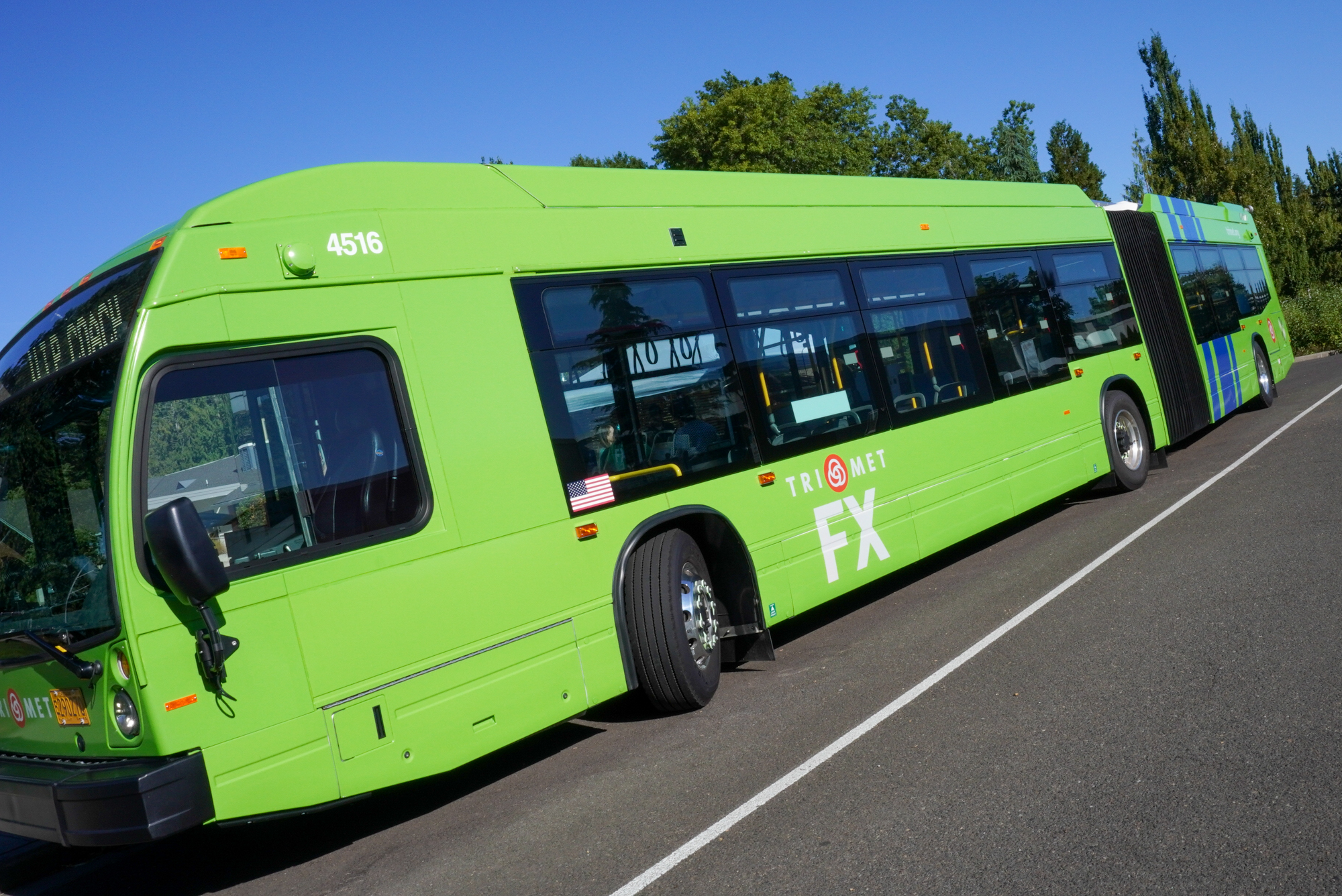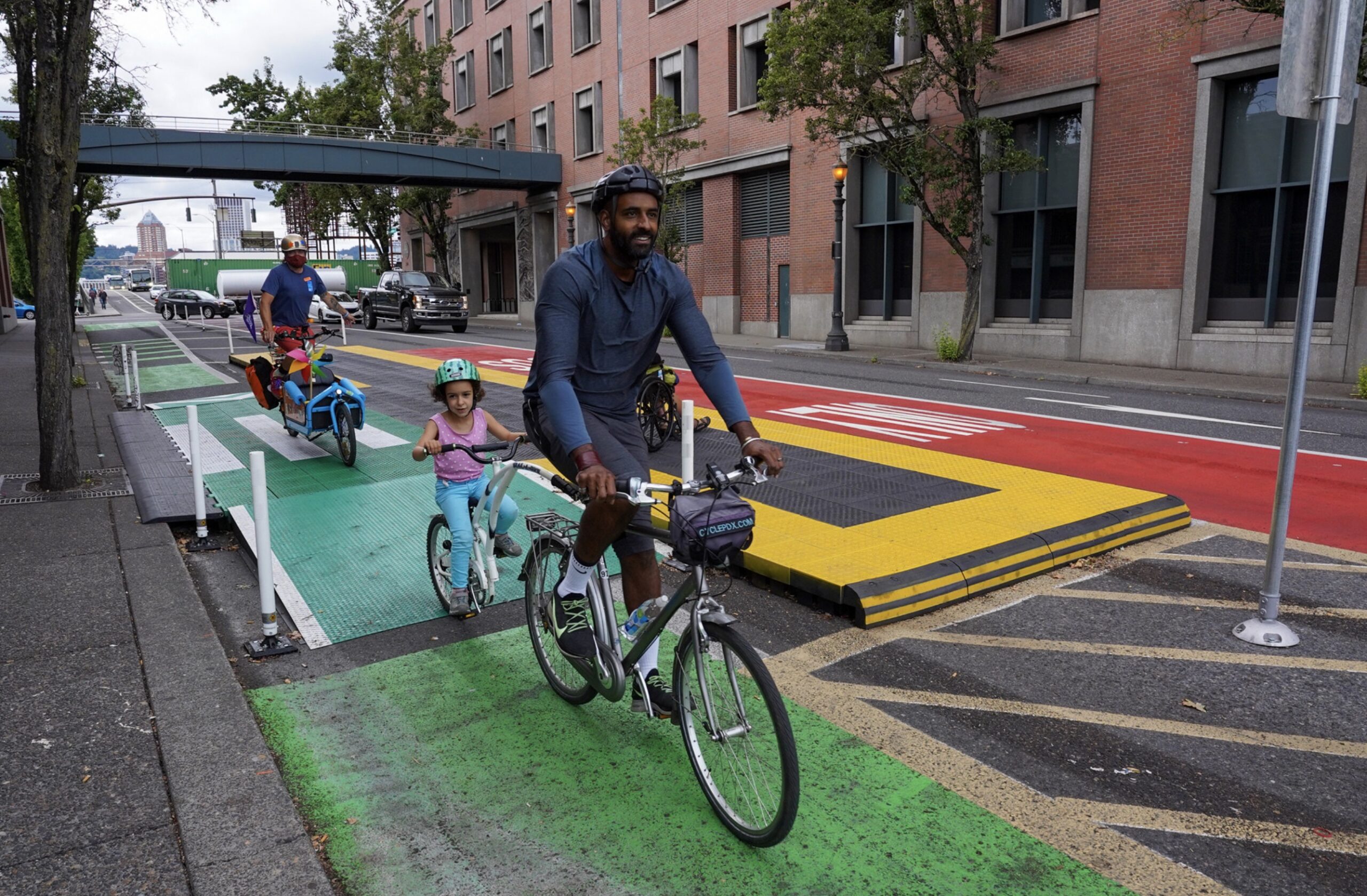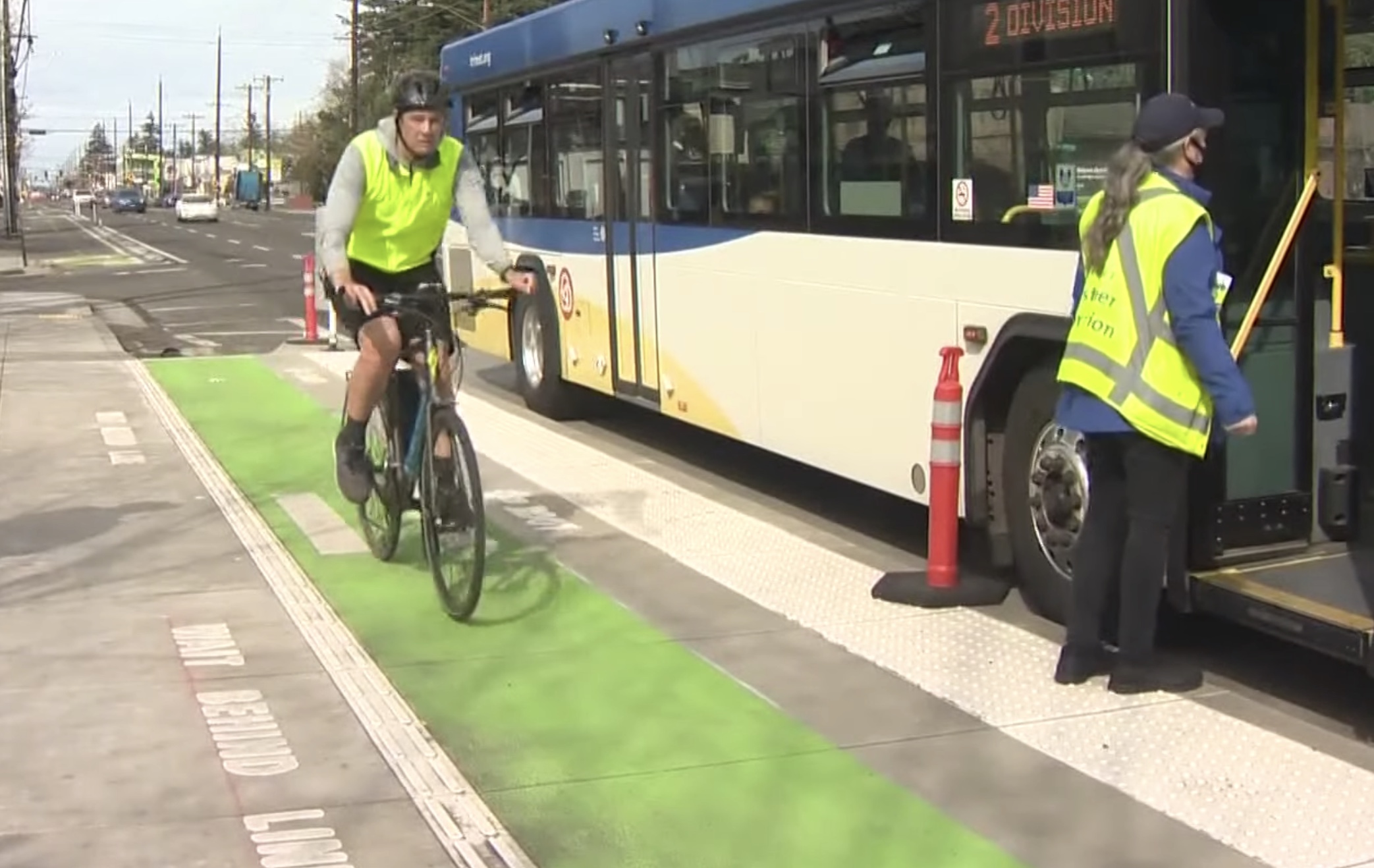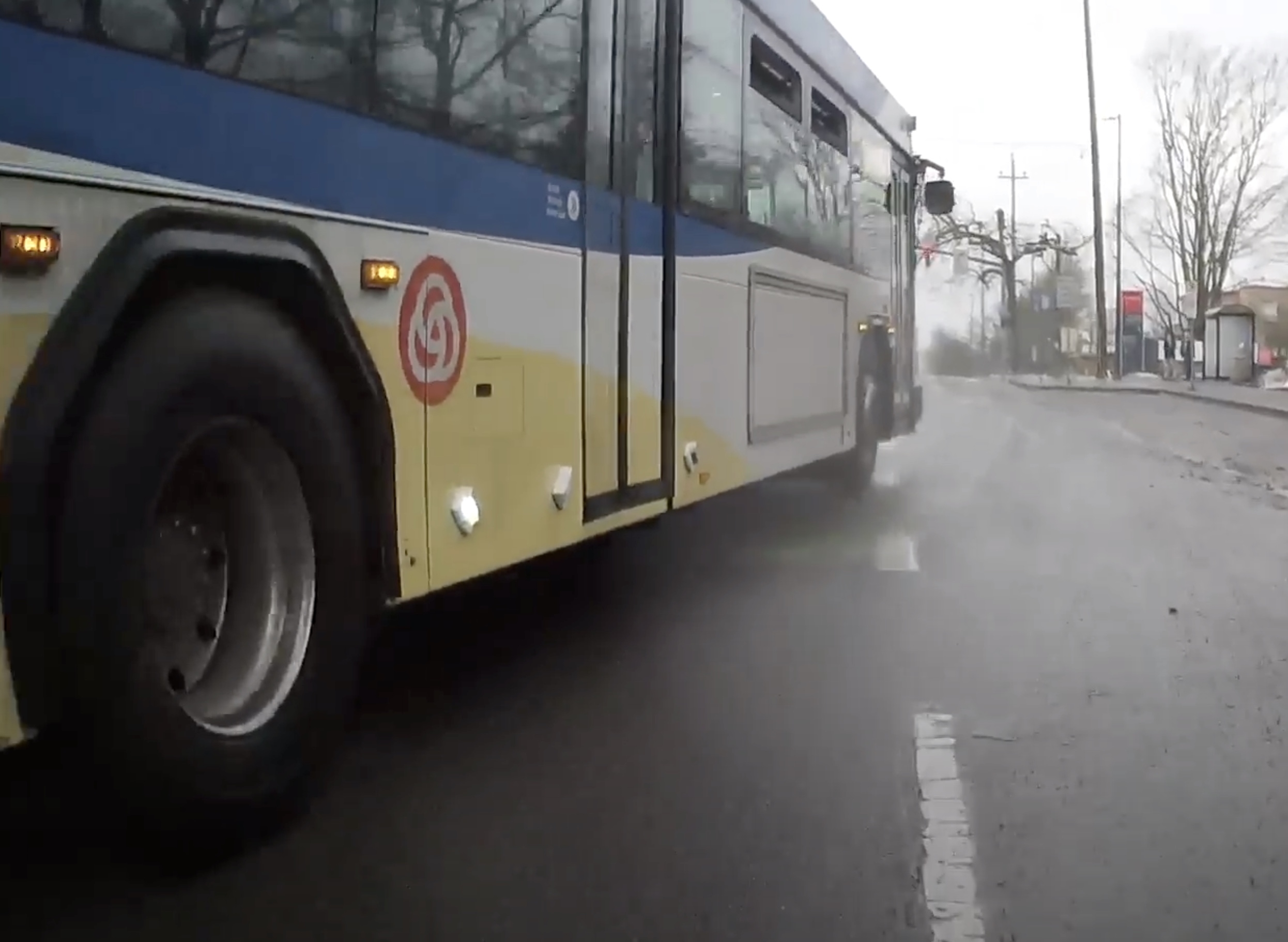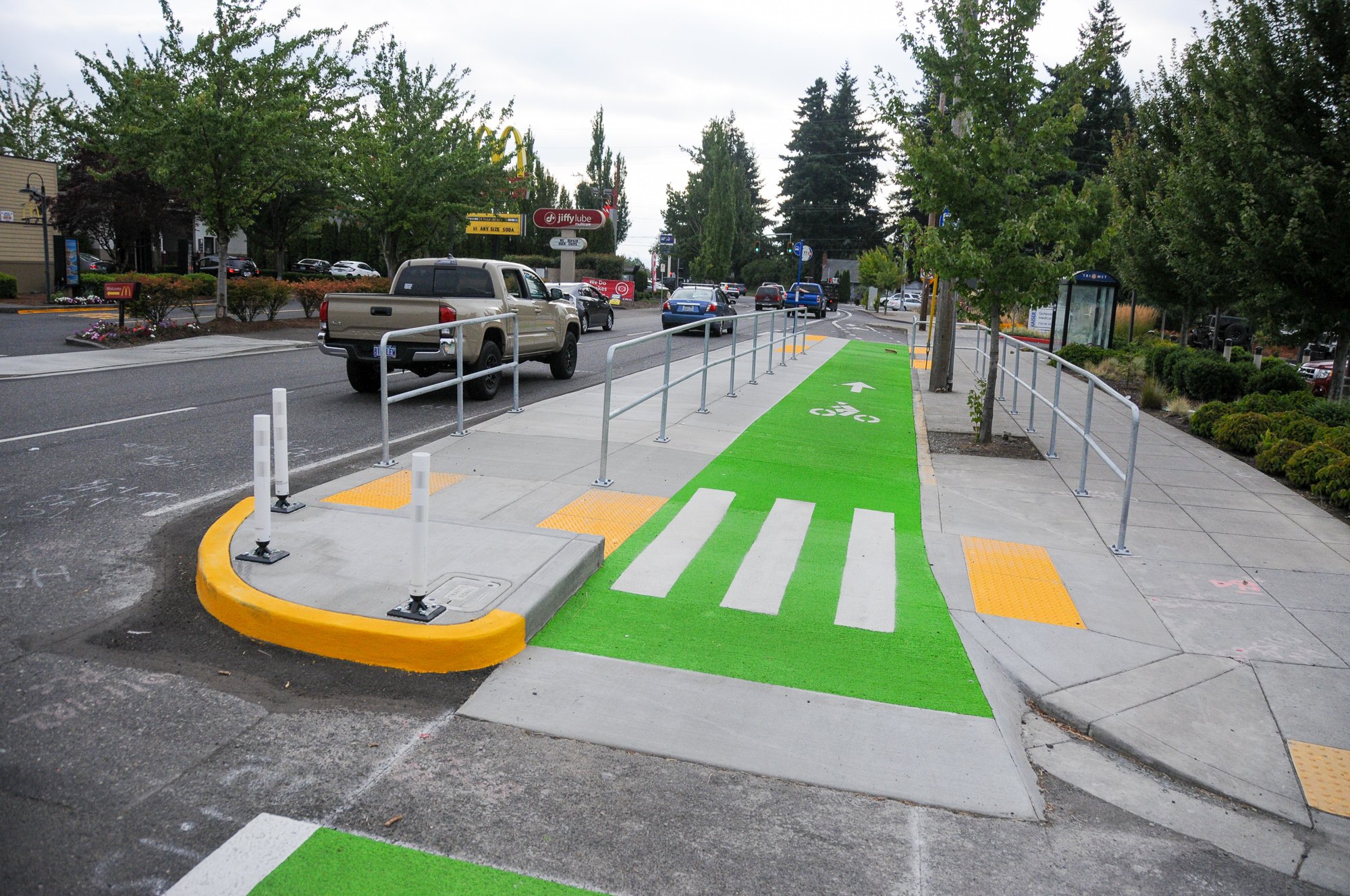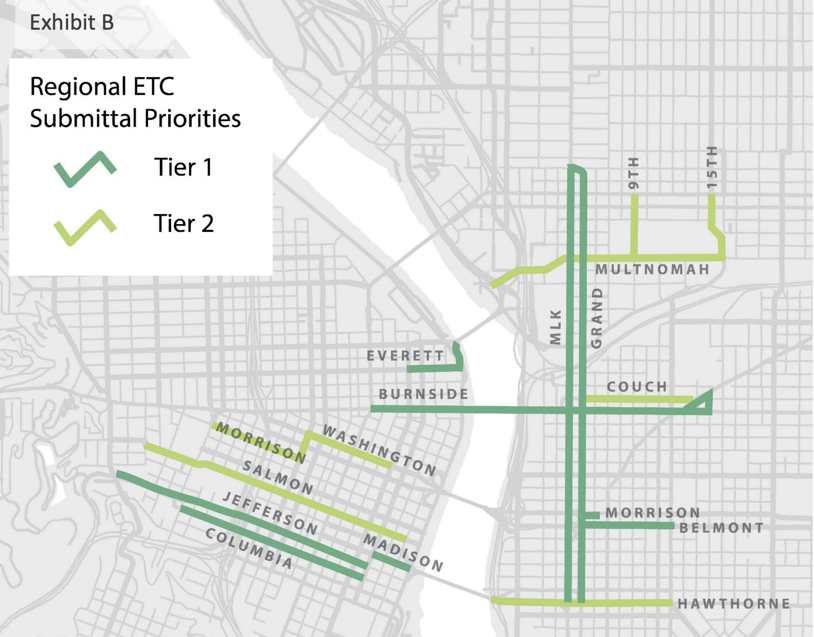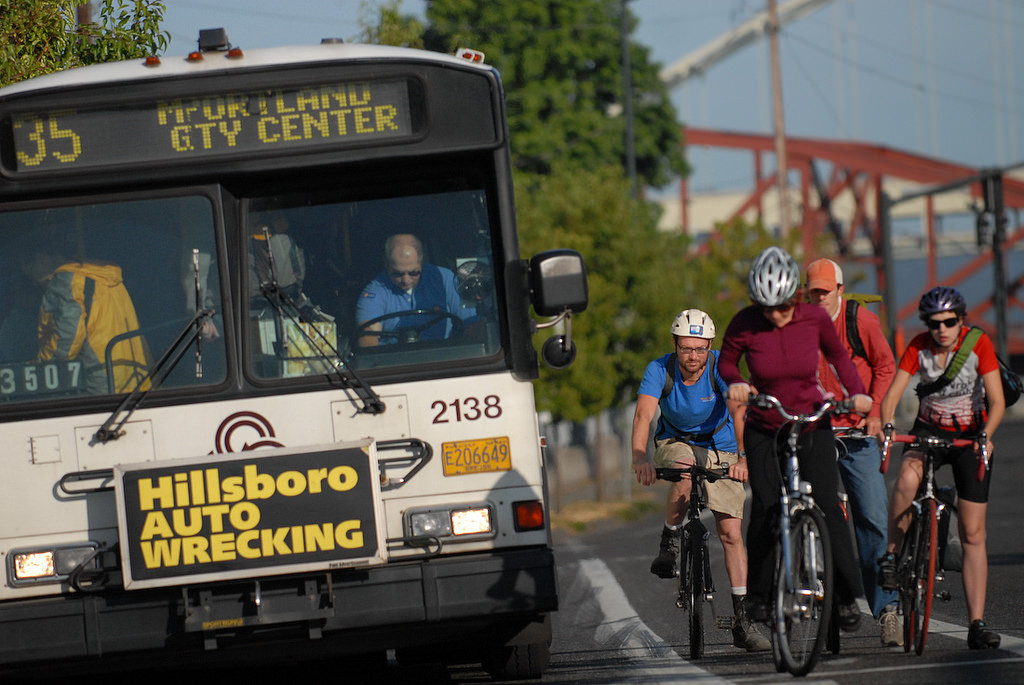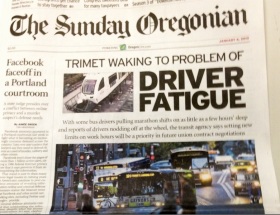Taking a ride on TriMet’s new FX line
TriMet has spent six years and about $175 million to establish a new kind of bus service on Southeast Division between downtown and Gresham. Now it’s finally time to see what this thing can do. The Division corridor has been the poster child for our region’s struggles with climate killing car dependency, traffic deaths and … Read more



